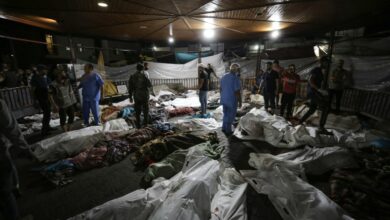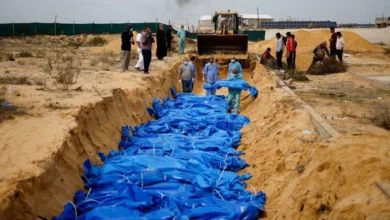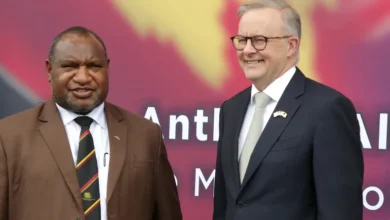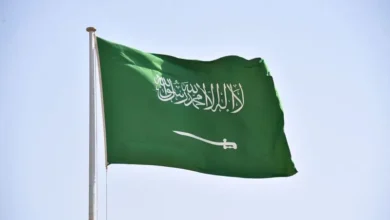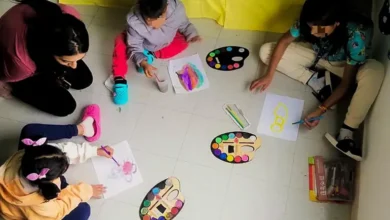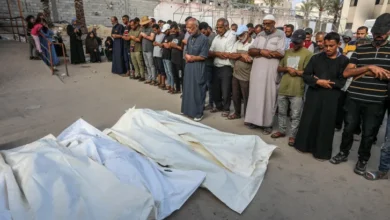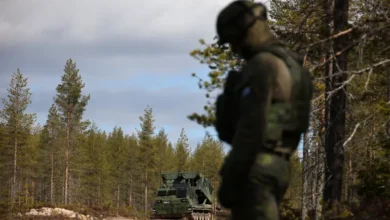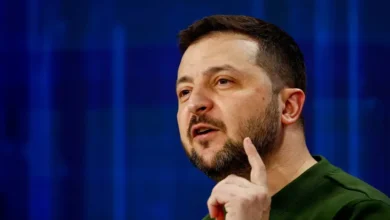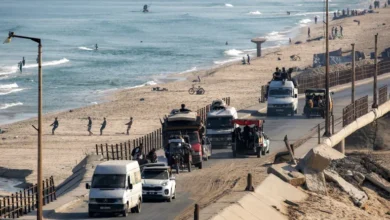Yemen truce progress good, but ‘not enough’: Senior State Department official
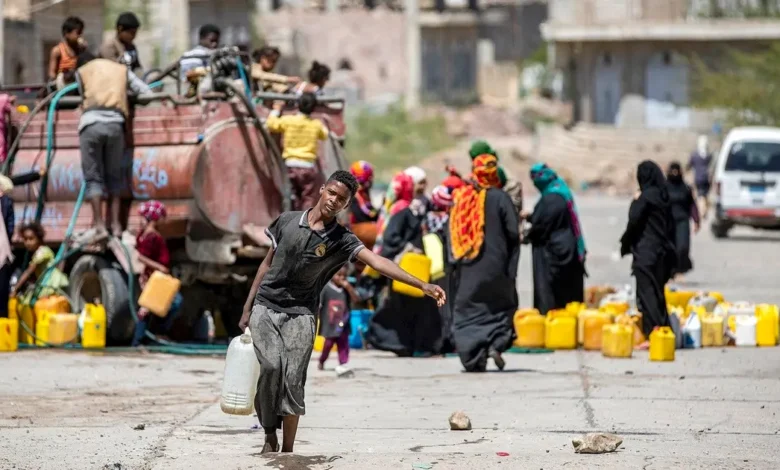
Washington is happy to see a truce in Yemen but will not be satisfied until a durable ceasefire is reached between warring sides, a senior State Department official said in an interview.
“The progress is great. But it’s not enough,” said the official who spoke on condition of anonymity.
Yemen was a main topic of discussion during Secretary of State Antony Blinken’s visit to the region last month and US Special Envoy for Yemen Tim Lenderking recently returned from a trip to Saudi Arabia to follow up on the latest developments in neighboring Yemen.
Flights from Yemen to Saudi Arabia for Hajj pilgrims and a prisoner swap were all seen as positive developments in the yearslong war that has pitted the internationally recognized Yemeni government against the Iran-backed Houthis.
“Conversations not happening last year at this time now are,” the senior State Department official said.
During the April prisoner exchange, the Houthis released prisoners and journalists, including Saudi and Sudanese troops fighting with the Arab Coalition. Hundreds of Houthi fighters were released in exchange.
The Arab Coalition also released an additional 104 Houthi fighters days later in a unilateral move led by Saudi Arabia.
A UN-brokered ceasefire was reached last year and extended twice before the Houthis refused a third extension. But fighting and clashes have been significantly reduced, and cross-border attacks on Saudi Arabia have stopped for months.
The decaying oil tanker off the Yemeni coast could also start being unloaded in the next few weeks in order to avoid an environmental catastrophe, the State Department official said. The Houthis, who control the area around the ship, previously agreed to a UN-brokered deal to allow experts to board the ship and begin offloading it. Some obstacles remain, including a $28 million shortfall in funding for the operation. The UN has agreed not to let the funding gap prevent its work to empty the tanker if other obstacles, including logistics and the Houthis, are resolved.
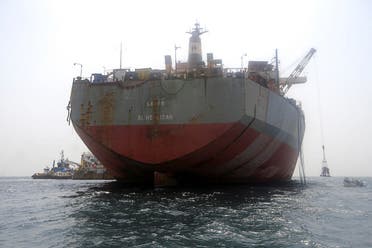
Negative Iranian influence
A China-backed deal between Saudi Arabia and Iran was widely expected to have a positive impact on the yearslong Yemen war.
The State Department has welcomed the Saudi-Iran deal to normalize ties and reduce regional tensions. Yet, the official noted that it has not fully materialized into a halt to Iran’s negative behavior inside the country.
Iran reportedly vowed to halt smuggling weapons to the Houthis. “We are eager to see the benefits of the Saudi-Iranian deal,” the State Department official said.
Last month, Lenderking accused Iran of continuing to smuggle weapons and narcotics.
The senior State Department official told Al Arabiya English that the US had not interdicted illicit weapons shipments to the Houthis in the “last few weeks” since Lenderking’s comments in May. But narcotics continue to be smuggled into Yemen. “That remains a big concern,” added the official.
The Houthis are still hindering some badly needed aid from getting to Yemenis. The official pointed to the Houthis’ blocking female aid workers from carrying out their work in an already dire situation.
And the Houthis are not the only Iranian-backed side in Yemen. Lebanon’s Hezbollah still has personnel deployed inside the country, according to the official, who added that the Lebanese militia was not playing a constructive role on the ground.
Moving forward
The US, with the UN, has expended significant diplomatic efforts to help reach a permanent end to the fighting in Yemen. President Joe Biden appointed Lenderking as special envoy to Yemen in one of his foreign policy moves after taking office, and the administration has made ending the war one of its priorities.
However, no one side can end the war. “Neither the UN nor the US can do that on its own,” the State Department official said. “And building on the de-facto truce is needed along with the beginning of Yemeni-Yemeni talks.”
So far, there has yet to be a process on a path forward for the Yemeni sides to talk to one another on the next steps. The State Department official said the future of the country, how its run and what it will look like is up to the Yemenis to decide. “No other party can do that,” he said.
As for the humanitarian catastrophe in Yemen, the State Department official said the way for that to end was for the war to end. “It’s difficult to get donors and support to the country with no truce.”
Detained US Embassy employees
Almost two years ago, the Houthis stormed the US Embassy compound in Yemen’s capital Sanaa.
Over 30 local Yemeni staff were detained and subsequently released with the help of Washington’s regional partners, a separate State Department official previously told Al Arabiya English.
But 12 current and former US and UN employees remain detained by the Houthis. The US has been able to rally support from regional and international countries, including Saudi Arabia, Oman and Europe, to push for the release of the detainees.
Reports over the last week indicate that at least two US staff members have been released. “This will certainly be a positive development and something we would welcome,” the State Department official said.
But the US, the official said, will certainly not lift its suspension of operations inside the country or reopen its embassy without the release of all their employees and a permanent truce. “There’s absolutely no reason or justification for the detention of [the UN and US] employees.”

